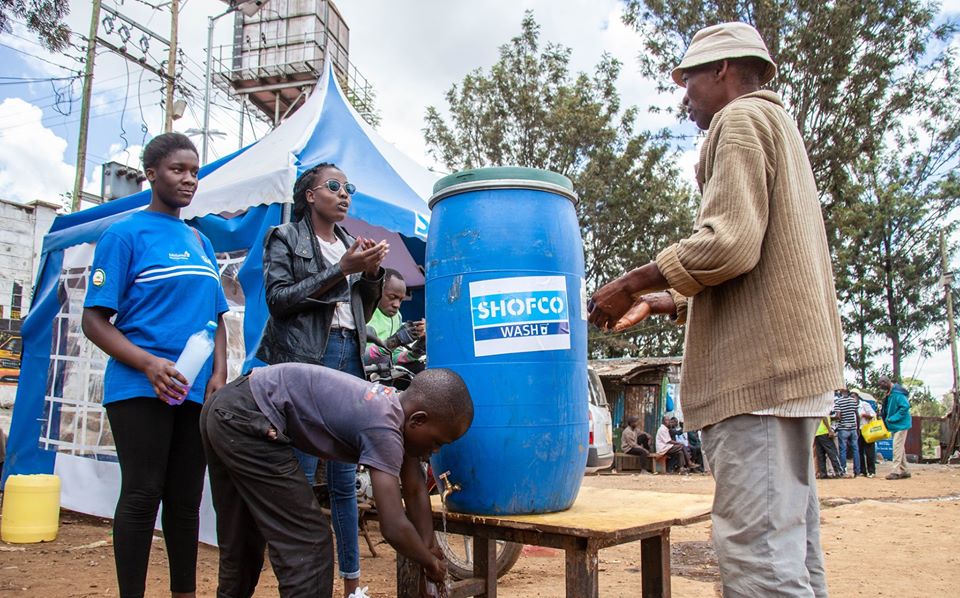- About
- Topics
- Picks
- Audio
- Story
- In-Depth
- Opinion
- News
- Donate
- Signup for our newsletterOur Editors' Best Picks.Send
Read, Debate: Engage.
| February 03, 2021 | |
|---|---|
| topic: | Good Governance |
| tags: | #Kenya, #statelessness, #United Nations High Commissioner for Refugees (UNHCR), #migrants |
| located: | Kenya |
| by: | Cyril Zenda |
“Today is a very happy day because we didn’t expect this thing to happen,” said an elated Oliver Muregerera, the leader of the 4,000 strong Shona tribe in Kenya, after President Uhuru Kenyatta took them by surprise when he ended their stateless status by granting them full citizens and making them Kenya’s 45th tribe. “We have lived in Kenya for many decades and we have been fighting for this to happen. We have gone through a lot. Now we have managed to get the citizenship. We say thanks to God. Only God led us up to this day.”
Muregerera and thousands other members of the Shona community in Kenya are descendants of some 100 Christian missionaries that arrived in the East African country in the early 1960s from what was then Rhodesia - now Zimbabwe.
The missionaries carried Rhodesian passports and were registered as British subjects. After Kenya’s independence in 1963, they had a two-year window to register as Kenyan citizens, an opportunity the members of this migrant community ignored because they did not understand its implications, only to find themselves stateless years later.
Over the next five decades, several generations of these people had been born and lived their lives in Kenya without any documentation.
With the help of the United Nations High Commission for Refugees (UNHCR), this Shona community had over the years lobbied and petitioned the government to give them citizenship.
Without Kenyan birth certificates or identity cards - primary documents needed to attend school or university, open a bank account, buy land, get a job, passport or mobile phone, or even to enter government buildings - these people led a ghostly existence in abject poverty.
According to a 2019 UNHCR report titled Understanding the Socioeconomic Profile of the Shona Community in Kenya, UNHCR noted that poverty was higher among the Shona population in Kenya. The report found that, on average, more than half the Shona population lived below the national poverty line.
“Kenyans in urban areas are twice as likely to attend secondary school as their Shona counterparts. For Shona children of secondary school age, the net secondary school attendance rate is 28 percent, compared to 50 percent among urban Kenyans,” reads the report.
UNHCR lauded the decision taken by the Kenyan government to grant citizenship to this community.
“This is a life-changing development for thousands of people,” said Fathiaa Abdalla, UNHCR’s Representative in Kenya. “We applaud the Government of Kenya’s decision to grant them citizenship, ensuring that they are fully included in society. This will also set a precedent for other countries to follow when it comes to resolving longstanding statelessness.”
Zimbabwe’s president, Emmerson Mnangagwa, expressed his gratitude for the goodwill gesture by his Kenyan counterpart, saying the move by President Kenyatta, expressed in the spirit of pan-Africanism, had brought an end to the untold suffering that the community had endured for decades.
Kenya’s Standard newspaper also expressed its support for the move.
“Statelessness is not an enviable classification to live under […] it denies one access to what citizens consider birth-rights,” the newspaper wrote in an editorial.
“Lack of the national identity card, the single most important document that any citizen must have to access services, is a serious handicap. The removal of limitations on, and assimilation of the Shona into the assembly of Kenyan tribes means they can now fully participate in nation building and enjoy the full benefits of citizenship.”
This is not the first time President Kenyatta has granted citizenship to a stateless people in Kenya. In 2017, he granted the recognition of the Makonde and Hindu people, making them Kenya’s 43rd and 44th tribes respectively.
The Makonde came to Kenya from Mozambique in 1930s to work on sisal plantations on the Indian Ocean coast. After Kenya’s struggle for independence, most of these migrant workers opted to stay behind and their offspring have known no other home but Kenya.
Until the latest recognition of the Shona people as citizens, Kenya had an estimated 18,000 stateless people, including different groups of people of Burundian, Congolese, Indian and Rwandan ancestry.
While global data is hard to obtain, as stateless populations are not always accounted for or included in national censuses, about 4.2 million people were reported by UNHCR to be living in statelessness in 76 countries. The actual number could however be substantially higher.
As UNHCR marked the sixth anniversary of the #IBelong Campaign in November, which is aimed at ending statelessness by 2024, world leaders were urged to include and protect stateless populations and make bold and swift moves to eradicate statelessness.
Image by: Uhuru Kenyatta
By copying the embed code below, you agree to adhere to our republishing guidelines.
